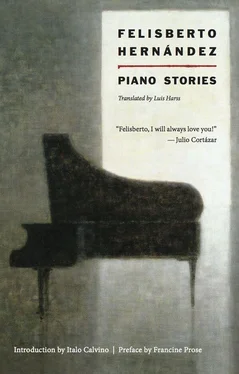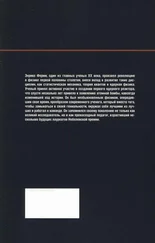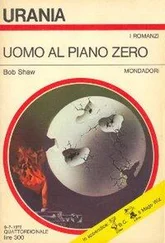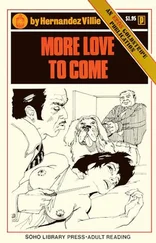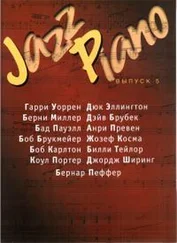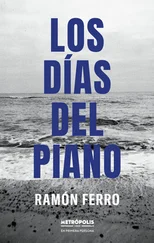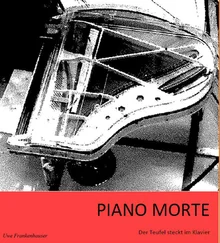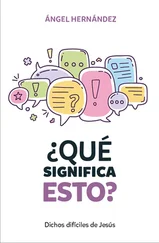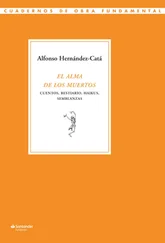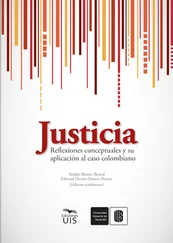Felisberto Hernandez - Piano Stories
Здесь есть возможность читать онлайн «Felisberto Hernandez - Piano Stories» весь текст электронной книги совершенно бесплатно (целиком полную версию без сокращений). В некоторых случаях можно слушать аудио, скачать через торрент в формате fb2 и присутствует краткое содержание. Год выпуска: 2014, Издательство: New Directions, Жанр: Современная проза, на английском языке. Описание произведения, (предисловие) а так же отзывы посетителей доступны на портале библиотеки ЛибКат.
- Название:Piano Stories
- Автор:
- Издательство:New Directions
- Жанр:
- Год:2014
- ISBN:нет данных
- Рейтинг книги:4 / 5. Голосов: 1
-
Избранное:Добавить в избранное
- Отзывы:
-
Ваша оценка:
- 80
- 1
- 2
- 3
- 4
- 5
Piano Stories: краткое содержание, описание и аннотация
Предлагаем к чтению аннотацию, описание, краткое содержание или предисловие (зависит от того, что написал сам автор книги «Piano Stories»). Если вы не нашли необходимую информацию о книге — напишите в комментариях, мы постараемся отыскать её.
Piano Stories
Piano Stories — читать онлайн бесплатно полную книгу (весь текст) целиком
Ниже представлен текст книги, разбитый по страницам. Система сохранения места последней прочитанной страницы, позволяет с удобством читать онлайн бесплатно книгу «Piano Stories», без необходимости каждый раз заново искать на чём Вы остановились. Поставьте закладку, и сможете в любой момент перейти на страницу, на которой закончили чтение.
Интервал:
Закладка:
We had come to a dark turn of the staircase. Below us, as we groped our way down, we saw the shadowy dining room. Floating in the middle of the room was an enormous white tablecloth that looked like a dead ghost riddled with objects.
The four girls sat at one end of the table, my friend and I and Alexander at the other. Between our two groups stretched several yards of empty white space, because the old footman was accustomed to setting the entire length of the table from the days when my friend used to live in the house with his large family. Only he and I spoke. Alexander sat with his thin face squeezed between his sidewhiskers. I couldn’t tell whether he was thinking: “I know my place” or: “I’m keeping my distance.” At the far end the girls chattered and giggled without raising their voices. And at our end my friend was saying:
“Don’t you sometimes need to be in complete solitude?”
I swallowed enough air to heave a deep sigh and said:
“I have two neighbors with radios across the hall and the minute they wake up they’re inside my room with their radios.”
“Why do you let them in?”
“No, I mean they play them so loud it’s as if they were inside the room.”
I had other stories to tell, but he interrupted me:
“You know, I used to hear a loud radio when I was strolling in the garden and it made me lose sight of the trees, of my whole life. It was a defilement that spoiled all my ideas: my own home no longer seemed mine, and more than once I decided I’d been born in the wrong century.”
I could hardly keep from laughing because at that moment Alexander, still with downcast eyes — and bristling whiskers — let out a kind of burp, his cheeks puffing up as if he were blowing on a horn. I hastened to ask:
“And now the radio doesn’t bother you any more?”
It was a silly conversation and I decided to concentrate on eating. But he was saying:
“You see, the man who made all that noise had to borrow some money and needed me as a guarantor. .”
Alexander asked to be excused for a moment. He signaled one of the girls and as they left together another burp made his whiskers flare out like the black sails of a pirate ship.
My friend went on:
“. . so I told him: ‘I’ll not only guarantee your loan, I’ll take care of the installments. In exchange, you’ll turn off your radio on Saturdays and Sundays.”
Then, nodding toward Alexander’s empty chair:
“He’s my man — he composes the tunnel like a symphony. He just got up because he didn’t want to forget something. Before, I used to let a lot of his work go to waste: when I couldn’t guess what a thing was, I asked him, and then he had to go to all the trouble of finding a new one to replace it. Now, if I can’t make out an object, I leave it for the next session, and when I’m tired of touching it without being able to figure it out I stick a tag on it — I always have some in my pocket — and he takes it out of circulation for a while.”
By the time Alexander returned we were well into the food and wines. Slapping my friend on the back, he said to me:
“You’re looking at a great romantic, the Schubert of the tunnel. He’s also shyer and he has more whiskers than Schubert. Imagine, he’s been making love to a girl he’s never seen — he doesn’t even know her name. After ten at night he keeps books for a warehouse. He loves being alone in the silence and the smell of old wood. One night he jumped over his books because the phone rang: she’d dialed the wrong number, and has kept on dialing it ever since, every night. But he wouldn’t dare touch her — except with his ears and intentions.”
A deep blush was engulfing Alexander’s black whiskers, and I began to like him.
After the meal Alexander and the girls went out for a walk while my friend and I napped on couches in his room. Then we also went out and spent the rest of the afternoon walking around. As the evening darkened my friend spoke less and his movements slowed. Now objects had to struggle to be seen in the fading light. It was going to be a very dark night: my friend was already feeling his way through the trees and plants. Soon we would be entering the tunnel with the memories of all the things the light had blurred before it went out. He stopped me at the carriage door. Before he could speak I heard the trickling stream. Then he said:
“For now you’re not to touch the girls’ faces — they don’t know you well enough. You may touch only the things along the wall to your right, on the counter.”
I had already heard Alexander’s footsteps. Keeping his voice low, my friend reminded me:
“Stay between us. Whatever happens, don’t lose your place.”
He shone a small flashlight on the first steps — dirt steps with bits of faded grass still growing on them. We came to another door and he switched off the light. Once again, he said:
“Remember, the counter is on your right, just ahead. Feel the edge of it, right here. And here’s the first item — it’s all yours. I could never figure it out.”
I placed divining hands on a small square box with a round surface bulging out the top. I couldn’t tell how hard the bulge was and I didn’t dare stick my nail in it. I felt a smooth ridge, a grainy area, and bumps — or warts — on one side, near the edge of the box. It made my skin crawl and I drew my hands back. My friend said:
“Well, did you think of anything?”
“This doesn’t interest me.”
“I can tell from your reaction that you thought of something.”
“I thought of the warty skin of some toads I used to see when I was a kid.”
“All right, move on.”
The next thing I touched felt like a mound of flour. I enjoyed sinking my hands in it. And he said:
“There’s a cloth tacked to the edge of the counter so you can wipe off your hands.”
I said, dropping a hint:
“I wish there were beaches made of flour.”
“Well, go on.”
Next was a cage shaped like a pagoda. I shook it to see if it had a bird inside. At that moment a light flashed — I couldn’t tell where from or what it meant. I heard my friend’s footstep and asked:
“What’s going on?”
He, in turn, asked:
“Something the matter?”
“Didn’t you see a light?”
“Oh, that — never mind. Since there are too few girls for such a long tunnel, they’re spaced far apart, so each has a flashlight to let me know where she is.”
I turned and saw the light flicker several times like a glowworm, just as my friend said:
“Wait here for me.”
And, heading toward the light, he blocked it with his body. I imagined him scattering his fingers in the dark and gathering them up again on the girl’s face.
Suddenly I heard him say:
“That’s the third time you’re first, Julia.”
But a thin voice answered:
“I’m not Julia.”
Whereupon I heard Alexander’s approaching footsteps and I asked him:
“What was in that first box?”
He took a moment to say:
“A pumpkin rind.”
My friend’s angry voice jolted me:
“I would thank you not to ask Alexander any questions.”
I swallowed hard to get his words down my throat and I put my hands back on the counter.
The rest of the session we were silent. The objects I had recognized were, in order: a pumpkin rind, a mound of flour, a cage without a bird, some baby boots, a tomato, a lorgnette, a woman’s stocking, a typewriter, an egg, a burner grate from a Primus stove, a football bladder, an open book, a pair of handcuffs, and a shoebox with a plucked chicken inside. I thought Alexander had shown poor judgment in placing the chicken last: its cold pimply flesh left me with an unpleasant sensation.
Читать дальшеИнтервал:
Закладка:
Похожие книги на «Piano Stories»
Представляем Вашему вниманию похожие книги на «Piano Stories» списком для выбора. Мы отобрали схожую по названию и смыслу литературу в надежде предоставить читателям больше вариантов отыскать новые, интересные, ещё непрочитанные произведения.
Обсуждение, отзывы о книге «Piano Stories» и просто собственные мнения читателей. Оставьте ваши комментарии, напишите, что Вы думаете о произведении, его смысле или главных героях. Укажите что конкретно понравилось, а что нет, и почему Вы так считаете.
